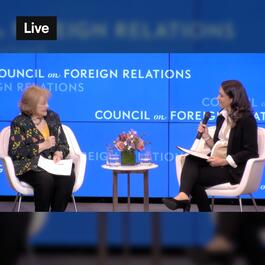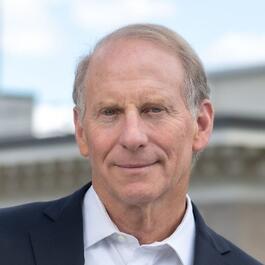
Why It Matters
Each episode of Why It Matters breaks down an issue that is shaping our world’s future. Join host Gabrielle Sierra as she speaks with the leaders and thinkers who are facing these questions head on. Fueled by the minds at the Council on Foreign Relations, Why It Matters brings some of the world’s most compelling stories home to you.
Show episodes
The unprecedented trade policies since the beginning of this year, driven largely by the Donald Trump administration’s pro-tariff agenda, have propelled the United States into uncertain and rocky territory. When it comes to our trading partners, the potential damage to U.S. alliances has left economists and policymaker
Is having a trade deficit necessarily a bad thing? Many experts argue that the U.S. trade deficit is largely good for our economy. It allows Americans to enjoy a wider variety of cheap goods, attracts foreign investment, and reflects the strength of the U.S. dollar. Others believe it’s a warning sign that we’re relying
Host Gabrielle Sierra and podcast guests Johanna Mendelson Forman and Matthew Costello discuss food diplomacy, share stories from White House state dinners, and unpack how food has helped to create lasting international partnerships. This taping was originally recorded on April 17, 2025. Featured Guests Johanna M
What role does the president have when it comes to making trade deals? In this episode, we dig into the expansive powers of the U.S. president when it comes to trade. From unilateral authority to congressional oversight, we unpack who truly calls the shots when the U.S. negotiates trade agreements. This season, Why It
Tariffs have sparked intense debate in Washington, but their consequences land far from Capitol Hill. Tariffs can shape paychecks, shift prices for consumers, and affect markets. At best, tariffs offer short-term protection for certain industries. At worst, they can uproot the lives of American workers. In this episode
Tariffs are often discussed in big, abstract terms—trade wars, economic strategy, global power struggles. But for ginseng farmers in Wisconsin, their effects are painfully personal. In this episode, Why It Matters dives into how tariffs work and how they’re hitting one of America's most niche yet lucrative exports: Wis





